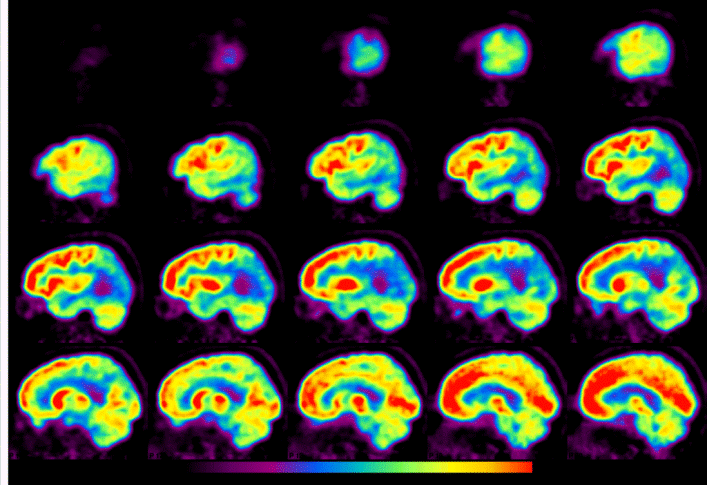Study: Brain imaging not accurate or sensitive enough (yet) to detect Alzheimer’s disease in primary care settings
 Accuracy of dementia brain imaging must improve (University of East Anglia release):
Accuracy of dementia brain imaging must improve (University of East Anglia release):
“A report published today in The Lancet Neurology evaluates for the first time how well different types of brain imaging tests work to detect Alzheimer’s and predict how the disease will progress.
The results show that the accuracy of brain imaging must be improved before it can be rolled out on a scale that could be useful to healthcare providers and patients.
The number of new diagnostic and prognostic tools for dementia is steadily increasing and here are a lot of different scanning techniques currently being used in clinical research settings. These include different types of MRI scans, which use strong magnetic fields and radio waves to produce detailed images of the inside of the brain, and Positron Emission Tomography (PET) scans, which use a small amount of a radioactive drug, or tracer, to test how tissues in the brain are actually functioning.
“We wanted to find out which procedures are useful for patients and which ones are not”…The results of this review are promising, but the downfall is that none of these methods are sensitive or accurate enough to be rolled out into primary care. We want to see diagnostic biomarkers with a sensitivity of over 90 per cent, and specificity near 100 per cent to be reliable.
“They would also need to be non-invasive, easy, time efficient and inexpensive,” he added.
Study: Multimodal imaging in Alzheimer’s disease: validity and usefulness for early detection (The Lancet Neurology)
- Summary: Alzheimer’s disease is a progressive neurodegenerative disease that typically manifests clinically as an isolated amnestic deficit that progresses to a characteristic dementia syndrome. Advances in neuroimaging research have enabled mapping of diverse molecular, functional, and structural aspects of Alzheimer’s disease pathology in ever increasing temporal and regional detail. Accumulating evidence suggests that distinct types of imaging abnormalities related to Alzheimer’s disease follow a consistent trajectory during pathogenesis of the disease, and that the first changes can be detected years before the disease manifests clinically. These findings have fuelled clinical interest in the use of specific imaging markers for Alzheimer’s disease to predict future development of dementia in patients who are at risk. The potential clinical usefulness of single or multimodal imaging markers is being investigated in selected patient samples from clinical expert centres, but additional research is needed before these promising imaging markers can be successfully translated from research into clinical practice in routine care.
To learn more:


